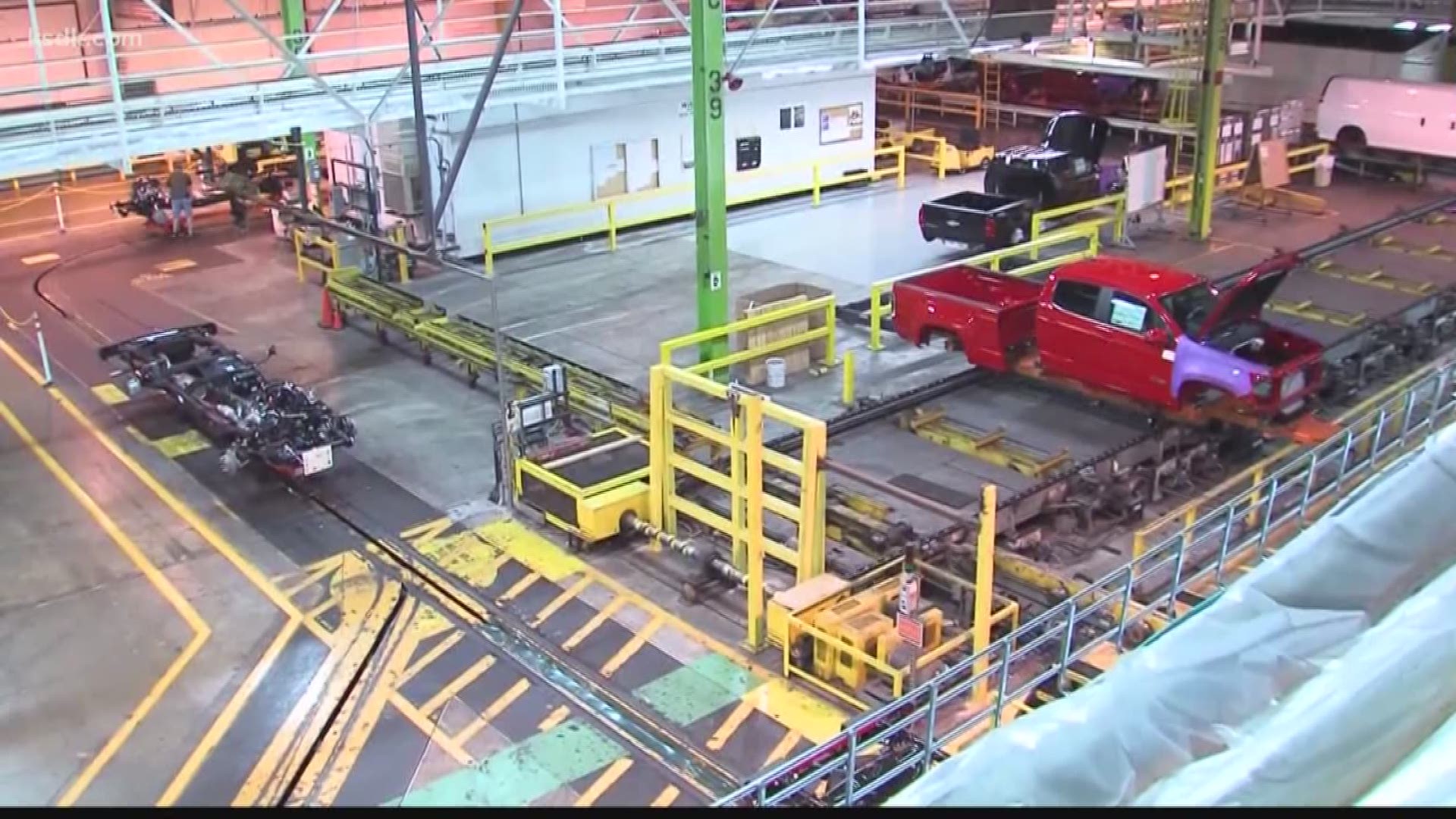JEFFERSON CITY, Mo. (AP) — Missouri lawmakers on Tuesday passed a package of new business tax breaks and scholarships backed by Gov. Mike Parson after a group of fellow Republicans opposed to parts of the bill ended a more than 27-hour filibuster in the Senate.
At issue was legislation passed last week by the House that would allow General Motors to receive up to $50 million in tax credits over 10 years if it invests $750 million to expand a Wentzville plant that makes trucks and vans.
The GM incentives were wrapped into legislation that also creates a new scholarship for adults to finish their college degrees and gives the Department of Economic Development discretion to provide upfront tax breaks to other businesses before they complete their planned expansions or hire additional employees.
"Today's final vote is a complete victory for Missourians and jobs in every corner of the state," Parson said in a statement. "We are sending a powerful message to the nation that we are ready to compete with every state for more jobs."
Opponents have denounced the upfront tax breaks as a "slush fund" that would be ripe for corruption and also criticized the new scholarship, which could only be offered to people going into fields designated by state higher education officials.
Members of the Senate's Conservative Caucus began filibustering around 2:30 p.m. Monday, carried on through the night and pushed past the 24-hour mark Tuesday, defying their own Republican leadership and thwarting one of the governor's top priorities during the final week of work in the annual legislative session.
They finally stopped stalling in hopes of allowing a sweeping abortion bill to pass before lawmakers' Friday deadline.
"Our desire to protect innocent human life was leveraged against us," said GOP state Sen. Bob Onder, who was among those filibustering even though his St. Charles County district includes the GM plant.
Parson said Missouri needs a flexible deal-closing option to compete with similar incentives already offered by neighboring states. He said Missouri recently lost a bid to bring a gun manufacturing company to Kansas City because of a deal-closing fund in Arkansas.
Others in the Senate's Conservative Caucus had also expressed opposition to a provision that would authorize what Parson has called the "Fast Track" scholarship program. The full-tuition scholarships would be available for up to four semesters to people ages 25 or older who earn less than $40,000 annually for individuals or $80,000 for married couples. The budget passed last week by lawmakers includes $10 million for the new program.
Both the closing fund and scholarship were part of Parson's agenda outlined earlier this year, before the opportunity arose for an expansion at the General Motors facility. The plant employs about 4,250 people in three shifts to make the Chevrolet Colorado and GMC Canyon mid-size trucks and the Chevrolet Express and GMC Savana full-size vans, according to GM's website.
The House on Monday passed a new version without those provisions, but Parson and Senate leaders preferred the original bill. The alternative House version would have required GM to retain 90% of the current jobs at the plant in order to qualify for the new tax breaks.
Republican Senate President Pro Tem Dave Schatz told The Kansas City Star that "folks from GM have made it very clear that there is some poison pills in there." He said one of those objectionable measures was the requirement to retain 90% of the jobs.
Parson said he wants to let the job-retention threshold be decided by negotiations involving the Department of Economic Development.
Department Director Rob Dixon said businesses that receive job-retention incentives are required, on average, to keep 88 percent of their workforce.
He said GM also has concerns about provisions in the alternative House version that would prohibit the company from simultaneously using other economic development incentives and require it to complete its capital investment within a two-year period to qualify for the tax credits.
General Motors spokeswoman Jeannine Ginivan declined to comment about specific parts of the Missouri legislation, but she said in an email that GM supports "the Governor's efforts to encourage investment and economic growth in Missouri."
Ginivan said GM has not decided whether to choose Wentzville for an expansion.
"There are several factors that go into making these decisions, including the overall business case for a project, discussions with state and local community officials and discussions with the UAW" union that represents employees, she said.

